After Years of Drug Abuse, Skateboarding Legend Brandon Turner Is Helping Others Battle Addiction
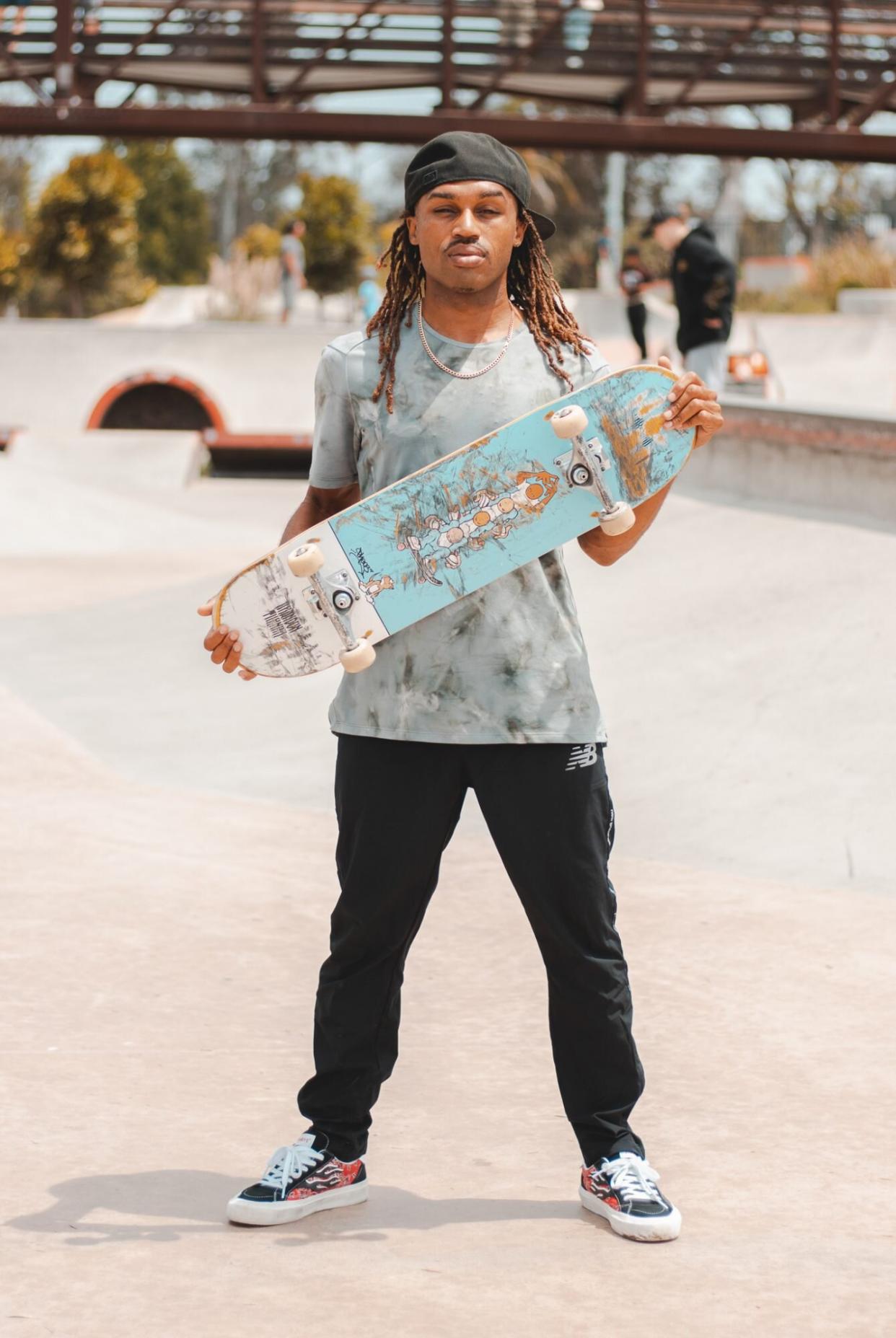
Jason Duaine Hahn Brandon Turner
As Dylan Phillips catches his breath, a group of skateboarders race by, heading toward the ramps and rails that line Linda Vista Skate Park in San Diego.
"I've been doing this for a long time, man," Phillips, a board in his hands and Airpods in his ears, says as sweat drips down his temple on a cloudy summer afternoon.
It was just months ago that the 27-year-old traded South Carolina for the shores of Southern California, and it's here — amid the thunderous sounds of skateboards rolling across the concrete — that he's the closest to feeling happy that he's been in a long time.
"This is something I used to love when I was a kid," he tells PEOPLE, tapping his board. "And it's something I'm starting to find a passion for again because it's progression. You can always get better."
"It's similar to recovery," he adds. "Because every day is about progression."
Phillips, like an estimated 22 million Americans, is in rehabilitation for drug dependence. And after countless attempts at overcoming an opioid addiction, he's found something that is working.
"I didn't want to get clean," Phillips remembers of his first attempt at sobriety at age 19, which was followed by the death of his fiancée when they both overdosed on fentanyl, a potent synthetic opioid similar to morphine.
"I survived, like a miracle from God I survived," Phillips recalls. "And that still wasn't enough to stop the obsession of continuing to use and keeping that lifestyle."
What came later was multiple run-ins with the law, nights in jail, and a felony linked to the manufacturing and distribution of opioids, Phillips says. Finally, he reached a breaking point. "I was hopeless and I was ready to just end it," he says before taking a pause. "However that was, I was just not going to live that life anymore."
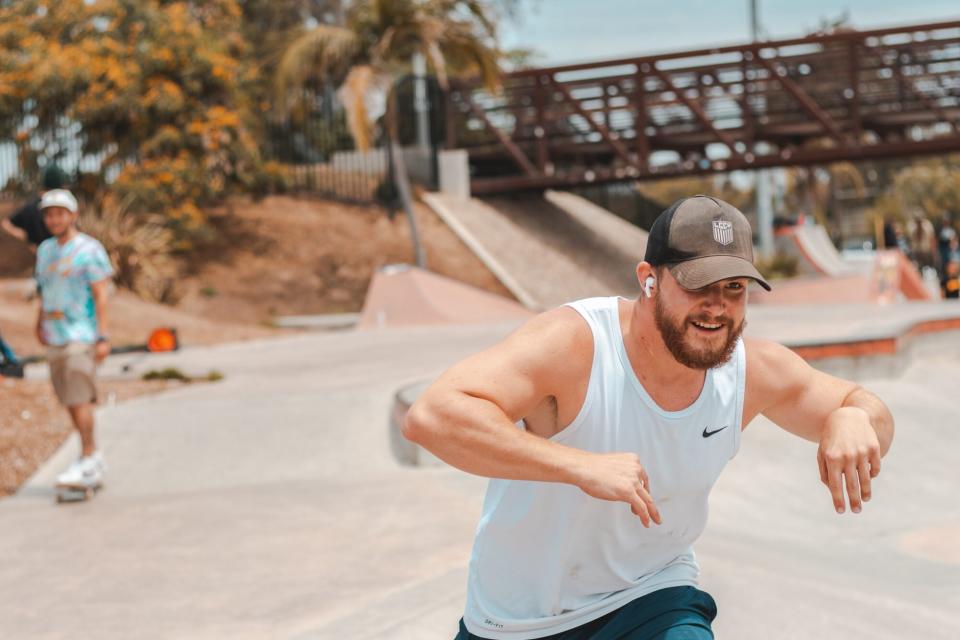
Jason Duaine Hahn Dylan Phillips
RELATED: Skateboarder Jeff Grosso Dies at 51: 'Skateboarding Was Lucky to Have Him as an Ambassador
Behind Phillips, a group of three skateboarders gathers around local skateboarding legend Brandon Turner. They take selfies with the 39-year-old, whose wavy dreads flow down his slim shoulders and past the gold chain around his neck.
"Brandon really cares about us," Phillips says. "He doesn't allow my fear or my anxiety or anything like that to stop me from doing what I'm capable of. He pushes everybody to that level."
What Phillips needed most, at this pivotal moment in his life, was someone who knew what it was like to not only feel the pull of addiction but the thrill of skateboarding. Turner — an activities director at the San Diego rehab center Healthy Life Recovery — was just that person.
I know I'm meant to help people.
—Brandon Turner
Every Tuesday and Thursday, Turner and a group of the program's members meet at one of the skate parks located around the city. In the year since he joined Healthy Life Recovery, Turner has held dozens of skateboarding lessons for locals coping with alcohol dependence and drug addiction.
"There's almost nothing that I haven't experienced in that world, so I can relate to them," says Turner. "What you feel a connection to is relatability, and in this world of people who are suffering through the same things that I do, it's a no-brainer, you know?"
Like those who seek help at Healthy Life, Turner grappled with addictions that began after he became a teen skateboarding sensation more than two decades ago. It would take many years before Turner found the strength to change the trajectory of his life.
"After doing a lot of work, I know what my purpose is," he explains. "I know I'm meant to help people."
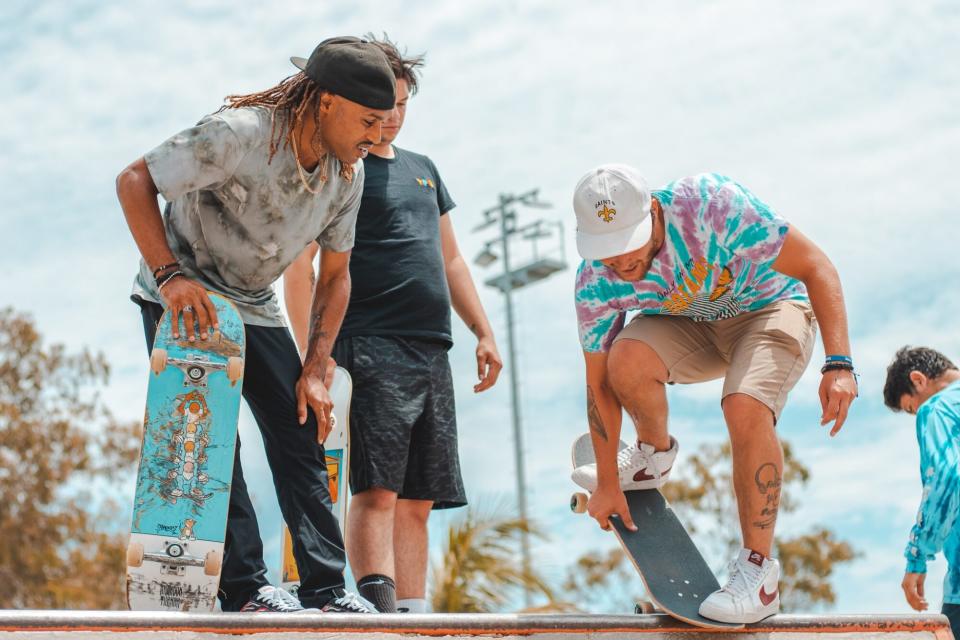
Jason Duaine Hahn Brandon Turner with Healthy Life Recovery's skateboarding participants
RELATED: Tony Hawk Looks Back on Landing Skateboarding's Holy Grail 20 Years Later: The 900 'Felt Surreal'
Much of the progress Turner experienced began after he took account of his mental health and accepted help from others, he says.
According to the Centers for Disease Control, more than 70,000 Americans died from drug-involved overdoses in 2019. This grew to over 93,300 deaths in 2020, likely spurred on by the effects of the COVID-19 pandemic.
The skateboarding community was hit by this deadly trend when 51-year-old skateboarder Jeff Grosso unexpectedly died of an overdose in March 2020. Grosso, who turned professional when he was 12 years old, became a beloved ambassador for the sport later in life, helping to preserve its history through his YouTube series, "Love Letters to Skateboarding."
But he had long been haunted by his past drug abuse, telling Transworld Skateboarding in 2017 that he overdosed on heroin on three separate occasions. Grosso, who had been sober since 2005, died from the "combined effects" of fentanyl and phenobarbital, a barbiturate commonly used to treat seizures and insomnia, an autopsy report later found.
A number of high-profile skateboarders are now living sober and speaking out after struggling with drug abuse, including Guy Mariano, Chad Muska, Elissa Steamer, and Arto Saari. Turner, who can add his name to the list, does not take his journey for granted, and how lucky he is to be alive.
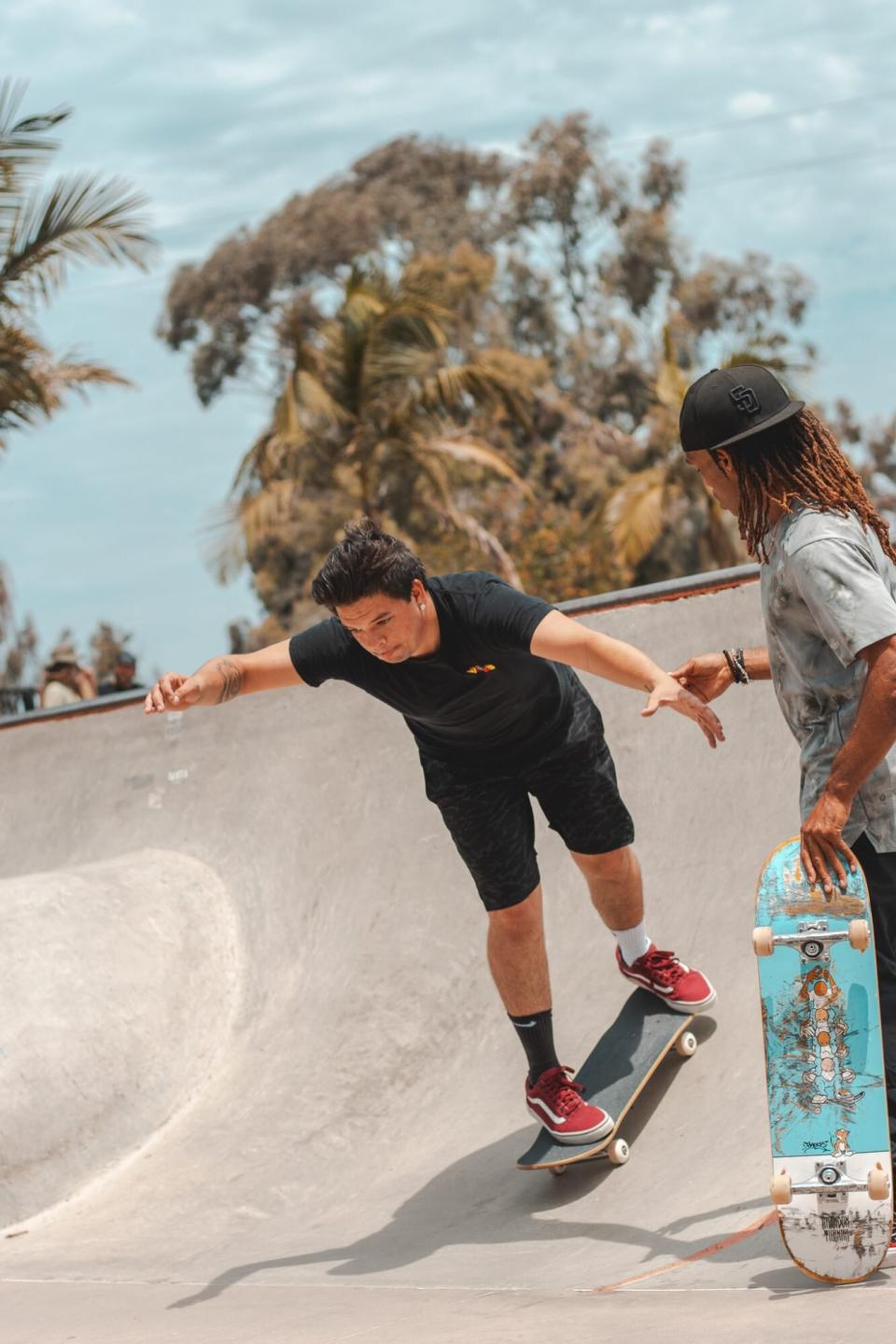
Jason Duaine Hahn Brandon Turner helps support a skateboarder down a ramp
[I] broke my other leg even worse, and cracked my head open, was on life support, flatlined, and they almost cut off my leg.
—Brandon Turner
In many ways, the trouble began before he even knew it had.
As a teen skateboarding prodigy in the 1990s, Turner was touring the world with the best skaters in the industry and making tens of thousands of dollars a month before many of his friends had even graduated high school.
His reputation in the skating scene soared after he entered a number of trick competitions (too many of them to count, he says) and starred in a series of tapes that showcased his skills, such as the iconic Shorty's video, "Fulfill the Dream," in 1998.
"There was a lot of attention," says Turner, who spent much of his childhood in Japan when his father was in the U.S. Navy. "There was always alcohol involved, always girls and women. I was traveling everywhere and I started getting in trouble."
It didn't take long for friends and family to take notice of his heavy drinking and constant partying, which seemed commonplace in the skating community.
"We go out, we film, we land tricks, then you celebrate," Turner — who fans and friends still refer to as "Lil' B," his longtime nickname — recalls, adding that he often brushed off any concerns about his alcohol use.
This mix of constant partying and free-flowing alcohol ultimately led to two of the most perilous nights of his life. The first occurred when Turner, then 17 and drinking while underage, ran from police when they appeared at a bonfire he and his friends were hosting near San Diego's Mission Beach. When officers caught up to him, he jumped from a bridge, breaking the tibia and fibula in his right leg. "It was devastating," he recalls.
Yet Turner was recovered and back to skateboarding just a year after the accident and made plans to officially turn pro. This was another reason to celebrate, and Turner and his friends soon found themselves at a party.
"There was some drama, I kicked some people out from another school or something," he recounts. "Then I woke up off of life support in the hospital."
Turner, who had been drinking, was hit by a car and suffered injuries more severe than the ones he had just recovered from.
"I got ran over, broke my other leg even worse, and cracked my head open, was on life support, flatlined, and they almost cut off my leg," Turner says, adding that his mother was able to convince doctors to salvage the limb.
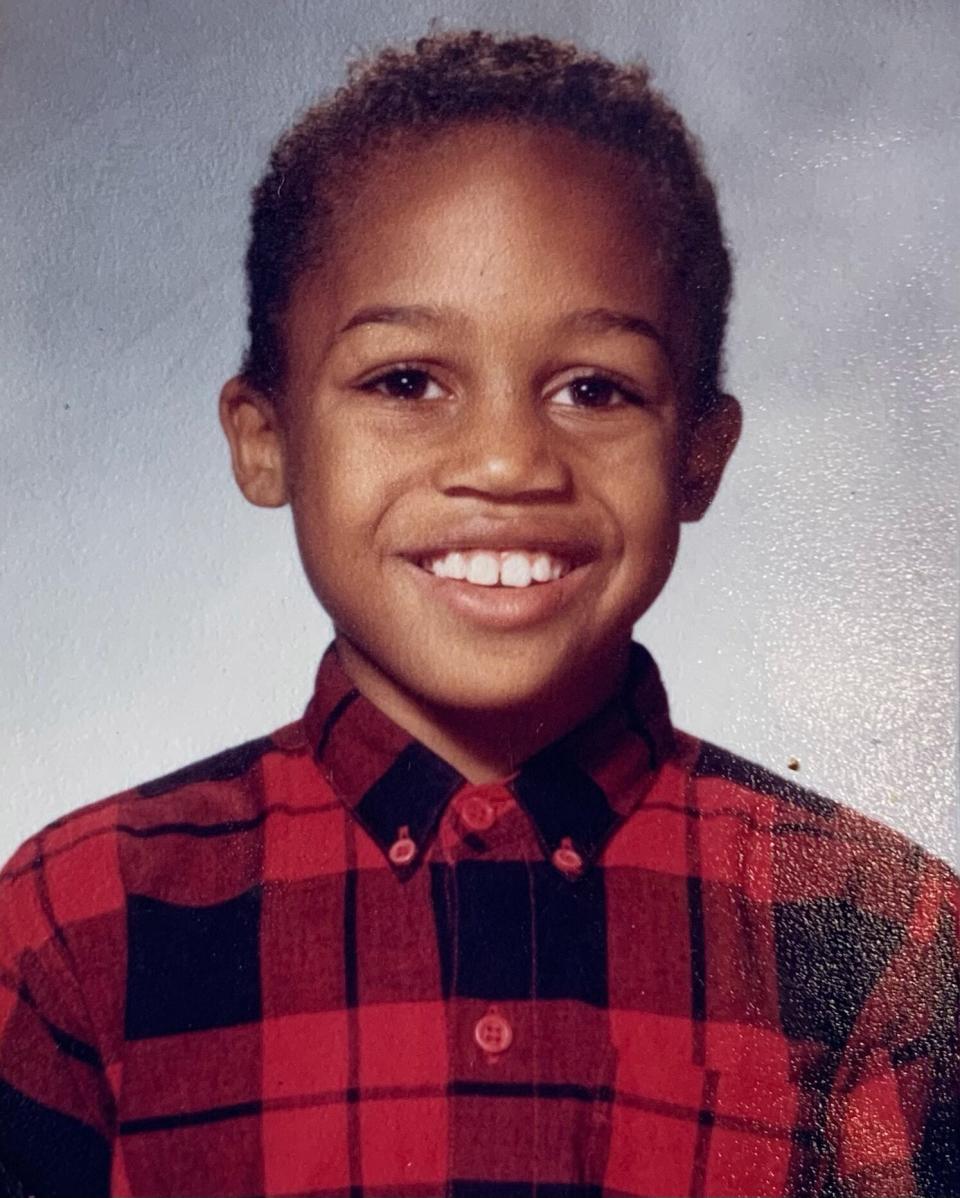
COURTESY Brandon Turner Childhood photo of Brandon Turner
Once more, Turner recovered and was back to skating — but again began abusing alcohol and drugs. This continued for several years, culminating in a 17-month sentence in a California prison for multiple DUIs.
"That's what really made me have the realization and spiritual awakening to what was really going on inside of me," he says. "It's not easy to really take a deep look at yourself and to be honest about it, especially when you have issues. It made stuff come out of me that I didn't know was there, and that's scary, you know?"
While in prison, he reflected on the internal issues he believes fueled his drug use, such as unresolved problems with his family. Months after his release in October 2014, he entered a 12-step program, and began eating healthier and exercising. Turner, who today rides for the skateboard label Sk8mafia, has remained sober since.
Me and my family, we all knew it was pretty dire and I just didn't feel like I want to live anymore.
—Ned Gittings
"Those first 30 days, man, the first five days, 48 hours, all that stuff is really difficult," skateboarder Ned Gittings says of the first things he experienced when he decided to quit alcohol. "You're sitting there inside yourself, it's just a terrible time."
"But in 90 days, all the stuff they say is true — your body starts to change because the alcohol and drugs are out of your system," he says. "And you'll see it, with these guys, the first 30 days they'll start skating. Their whole look changes, their skin, their demeanor. It's crazy to watch. We'll see people after a few months and it's just, 'Oh my God, who is this guy? Who is this girl?' It's crazy."
Gittings — a tall, scruffy and tattooed photographer — struggled with frequent binge drinking until family members urged him to become sober in August 2020. Around that time, he reached out to Healthy Life Recovery after listening to Turner's life story on the popular skateboarding podcast, The Nine Club.
"It all happened at the right time for me," he says. "And I say it time and time again, but it saved my life for sure because, by the time I got to Healthy Life, it had gotten really crucial. Me and my family, we all knew it was pretty dire and I just didn't feel like I wanted to live anymore."
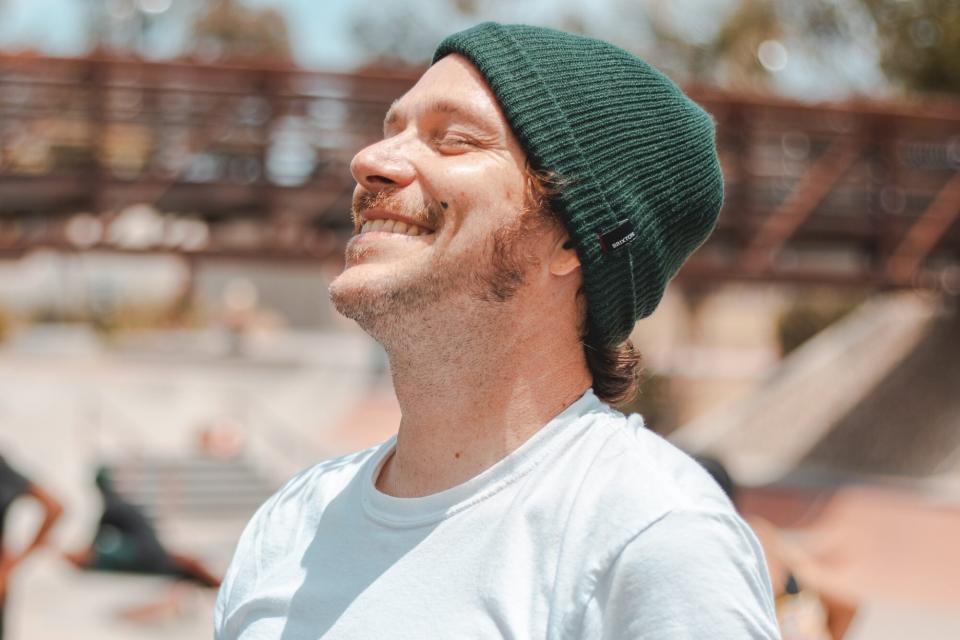
Jason Duaine Hahn Ned Gittings
The 42-year-old has since rebuilt his life and the relationships most important to him, including with the mothers of his two young children. Turner, Gittings explains, played an important part by encouraging him to be honest with them about his sobriety.
"My kids know that I'm in rehab, they know I don't drink anymore and don't mess with that stuff," says Gittings. "It was hard to see that all that stuff could one day turn into all something positive in my life."
Like Dylan Phillips, entering rehab helped Gittings reconnect with skateboarding, something he had long lost to his addiction.
"I stopped skating. I got really sick in lots of different ways, emotionally, spiritually, my body was a mess," Gittings recalls. "But rebuilding my body with skateboarding has been hard because skateboarding is very difficult. When you're older, like me, you see the challenge. I knew skateboarding was hard, but I'm relearning how really ridiculously hard it is."
RELATED VIDEO: Dax Shepard Recalls the 'Lowest Moment' During His Road to Addiction Recovery: It Was 'Very Scary'
Skateboarding may be a helpful tool for people looking to improve their health or maintain their sobriety. Epidemiological studies have shown that people who participate in regular exercise are less likely to use and abuse illicit drugs, and in one 2020 report, a team of five researchers from Cal State San Marcos found that adults who skateboard at community skate parks for at least three hours a week achieved heart rates consistent with what the CDC recommends for weekly cardiovascular fitness.
"Rebuilding my body has been beautiful," Gittings says of his return to the sport. "It's a beautiful thing that happened here. I'm really happy to be a part of it."
With the sun peeking out from behind the clouds over the skate park, Turner takes a break to join Gittings under the shade of a tree. But Phillips, who was one of the first to arrive for a session, is showing no signs of slowing down. Each and every kick of his board seems driven by a purpose.
"That overdose damn near took my life, and I feel like it was God that brought me back to a place where I could succeed," Phillips says.
"And this program has been absolutely monumental in my early sobriety," he adds, "it keeps me accountable and gives me something to do with my time, that's to come out here and skate and have fun."
When you get on the grip tape and roll, and get that sense of controlling something else that's not attached to you, it's a euphoric feeling.
—Brandon Turner
Turner still remembers hearing the distinct rumbling of a skateboard roaring down his neighborhood street when he was about three years old and living with his parents in San Diego. Each time, Turner went outside to watch the local teenager roll by.
"One day he stopped and looked at me, put me on his board, and took me down the street, just super-fast, holding me on the front," Turner recalls of his introduction to the sport. "From that point, I was seriously hooked."
While the years that followed were filled with difficulties, Turner never lost his passion for skateboarding and the community that surrounds it. "They're my people, who I understand," he says.
In January, more than two decades after starting his career, Turner once again became the talk of the skateboarding world when he won Street League Skateboarding's "Trick of the Year" for 2020 at age 38. The trick, a Switch Hardflip over the legendary "Wallenberg" gap outside Raoul Wallenberg Traditional High School in San Francisco, was something he had dreamed of achieving since he was a teenager.
"It was a lot of work, I switched up my whole lifestyle to not only better myself and help others, but also so I can be the best I can be as an all-around person, physically and mentally," he explains of the long journey that led him there.
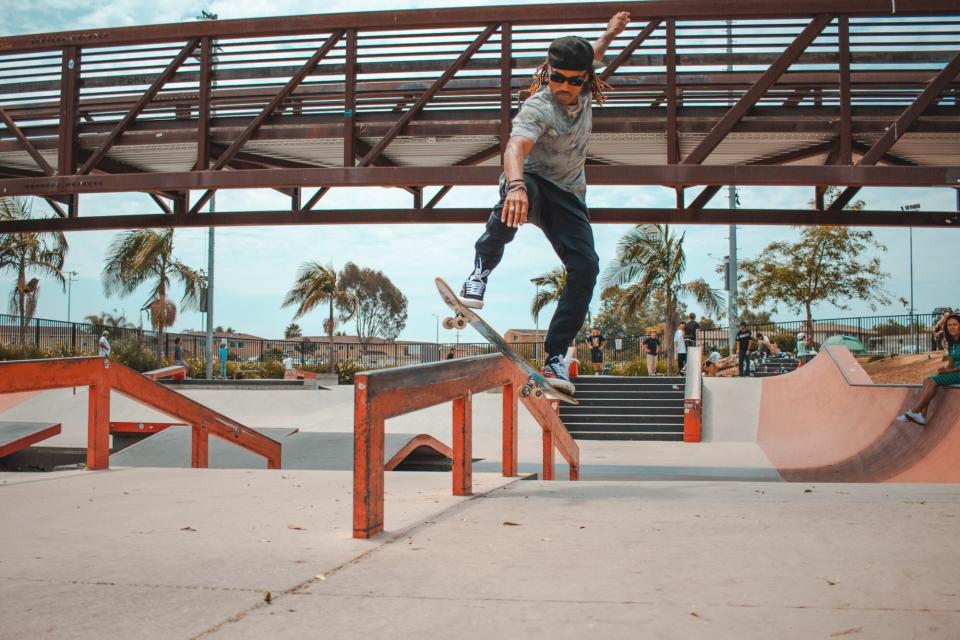
Jason Duaine Hahn Brandon Turner grinds a railing at Linda Vista Skate Park
The honor came just a few months after Turner, along with skateboarders Shuriken Shannon, Tommy Sandoval, and Tyrone Olson, hosted the "Rolling for Rights" rally in San Diego. The event was attended by hundreds of skateboarders in support of ending racial injustice, systemic racism, and police brutality.
Despite life's complexities, skateboarding, at its essence, has remained simple for Turner — it will give back as much as you put in. And as he's found, the results can be life-changing.
"When you get on the grip tape and roll, and get that sense of controlling something else that's not attached to you, it's a euphoric feeling," Turner says, watching as a group of young skateboarders — the sport's future — head into the park.
"When you hop on a skateboard," he says, "it's freedom."
If you or someone you know is struggling with addiction, please contact the SAMHSA substance abuse helpline at 1-800-662-HELP.

